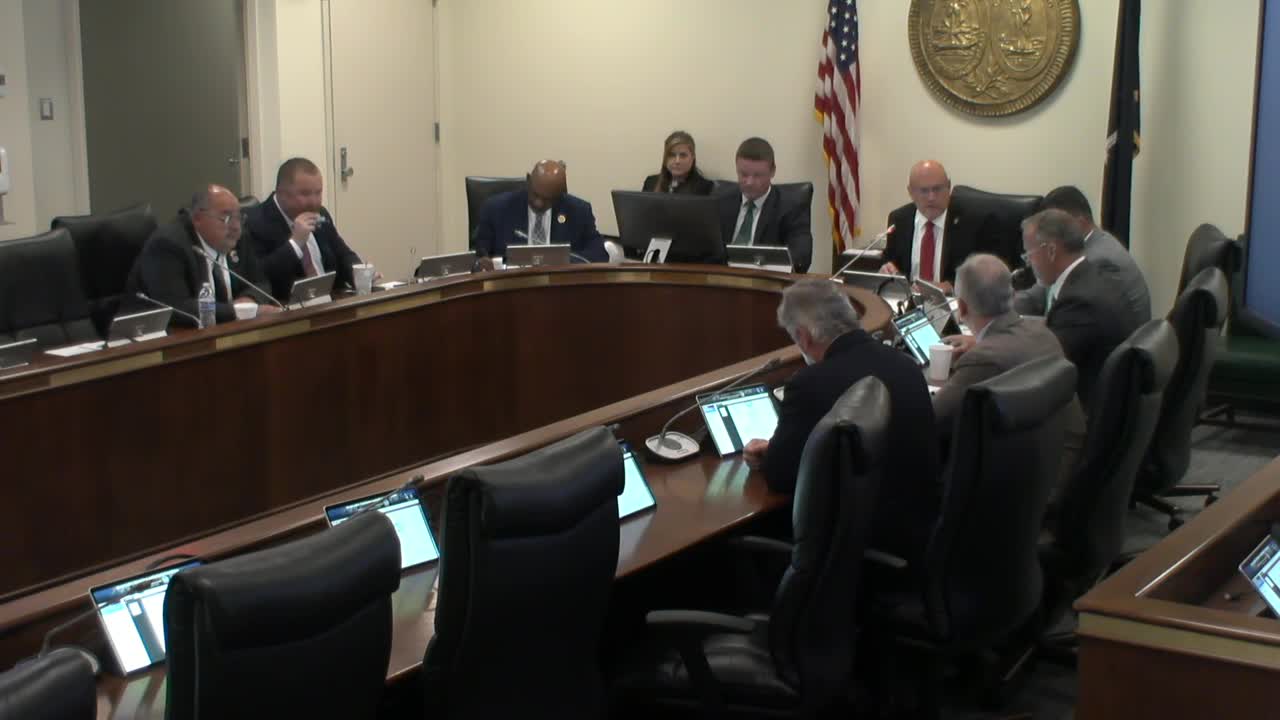Subcommittee approves amended S.171 to change tire recycling fee, raise county tipping cap
Get AI-powered insights, summaries, and transcripts
Subscribe
Summary
The Business and Commerce Subcommittee of the Legislative Committee on Industry approved an amended S.171 that narrows a $2 advanced recycling fee to unmounted tires, raises the county tipping-fee cap from $150 to $400 per ton, and directs funding and data improvements intended to support in-state markets and county cost recovery.
COLUMBIA — The Business and Commerce Subcommittee of the Legislative Committee on Industry on April 20 approved an amended S.171 that would change how South Carolina’s $2 advanced recycling fee on tires is applied and increase the maximum county tipping fee for waste tires.
The amendment approved by the panel narrows application of the $2 advanced recycling fee so it applies only to unmounted tires rather than to tires sold as part of new vehicle purchases. The bill also would raise the statutory cap on county tipping fees from $150 per ton to up to $400 per ton and increase funding for a state grant intended to cover county shortfalls in tire disposal costs.
John Wings, a representative of the South Carolina Association of Counties, told the subcommittee the amendment “changes that language from $2 on new vehicle sales to only $2 on unmounted tires.” He said the change was proposed by the auto dealers association and that the Association of Counties and the Manufacturers Alliance support it.
Wings described rising disposal costs and limited in-state capacity as the primary drivers of the legislation. “There’s currently only one facility in South Carolina that accepts waste tires,” he said, and counties often ship tires out of state to North Carolina and Alabama. He told the subcommittee that some counties now face transport and disposal costs as high as $350 to $380 per ton; the bill would allow counties to charge up to $400 per ton to better cover those costs.
Alan Klump, representing the South Carolina Tire Council and the South Carolina Manufacturers Alliance, said the bill also targets improved data and market development. “From the data enforcement side, the manifest information we think is very important in tracking where these tires are moving,” Klump said, describing a move to digitize the existing manifest system to provide more real-time information. He and other presenters said grant funding could be used to help develop in-state markets, including uses in construction materials.
Jason Jordan, executive director of the South Carolina Asphalt Pavement Association, told the panel that the South Carolina Department of Transportation (SCDOT) already permits use of rubber-modified asphalt in engineered applications. “SCDOT does have specifications that do permit rubber modified asphalt, currently,” Jordan said, adding that his group seeks to avoid a required mandate on the percentage of rubber-modified asphalt used so engineering performance remains the priority.
The bill retains the existing distribution of the $2 advanced recycling fee: $1.50 to counties and $0.50 to the South Carolina Department of Health and Environmental Control’s Division of Environmental Quality (referred to in testimony as DES) for administration and processing. Witnesses told the subcommittee that a state grant historically used to make counties whole has funded only about 80% of county requests in the last two years, a shortfall the legislation seeks to address.
Witnesses and lawmakers also discussed retreading and reuse: proponents said certified retreading can reduce waste by roughly 68 percent and that scanning technologies are used in modern retread processes. Klump and others said potential uses for waste tires include certain asphalt specifications that, in new full-depth road construction, can use large numbers of shredded or processed tires — presenters cited figures as high as roughly 4,000 tires per lane mile for some SCDOT specifications.
During questions, Representative Brewer asked whether the bill or related specifications would create a requirement for SCDOT to mandate rubber-modified asphalt; presenters said no mandate is intended. The subcommittee chair then moved to accept the amendment; the motion received a second and passed by voice vote. A subsequent motion to advance the amended bill also passed by voice vote; the panel’s records reflect unanimous approval on both actions.
The bill was the only item on the subcommittee’s agenda and was approved in amended form for further consideration, with proponents saying the changes are intended to improve county cost recovery, increase data about tire flows, and support in-state market development for end uses of waste tires.
The subcommittee did not set a date for further floor action in the transcript of the meeting.
